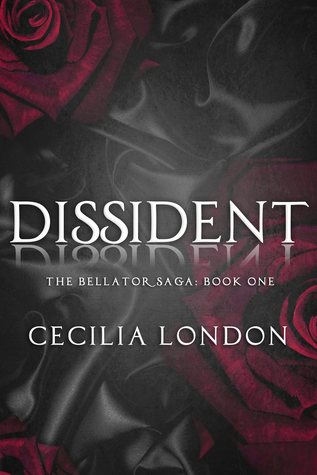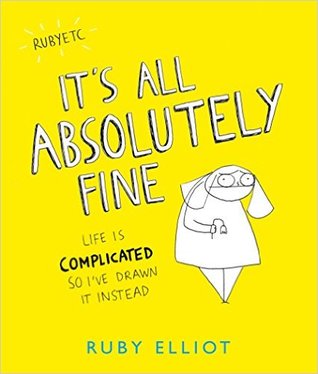There are two kinds of literature in the world: the kinds that make sense & the kinds that don't. In recent years, the kind of literature that
don't make sense have become popular, lining the shelves in hipster bookstores, as devoted hipster-lit aficionados have long arguments about "what the author really meant." (And don't tell me that Helen Oyeyemi isn't hipster-lit, because I was in a hipster bookstore recently, & she had an entire display all to herself.)
This is the second of Helen Oyeyemi's works that I read. The first was her novella, MR. FOX. I thought the prose was gorgeous but I couldn't for the life of me figure out what was going on in the story. Everything was so confusing! Maybe this makes me a literary pleb, but I do like my stories to be at least somewhat straightforward. Leaving things up to interpretation is all well and good, but there comes a point where you can be so
vague that your reader is pretty much left behind in the dust - and that's what happened to me.
Helen Oyeyemi and I were forced together yet again when WHAT IS NOT YOURS IS NOT YOURS was chosen as our next book in my book club - yes, this is the same book club that forced me to read WHERE'D YOU GO BERNADETTE. That was a positive experiment, however, so I figured I'd read WHAT IS NOT YOURS with an open mind. After all, she was a semi-finalist in the Goodreads Choice Awards for best fiction - the public majority can't be wrong, can they? ...Can they?
Well.
WHAT IS NOT YOURS IS NOT YOURS suffers the problem that plagues virtually every short story collection that I have encountered: uneven quality. Some stories are definitely heaps better than others, and the bad ones make the whole suffer. Interestingly, she also does what Roxane Gay did in her collection, which made me like both collections less: randomly insert magic-realism into the storyline for funsies (or for hipster-lit cred, one of those two) even if it doesn't make sense to do so.
Books and Roses: ☆☆
A prime example of that old adage, "too much magic-realism spoils the broth." At its heart, Books and Roses contains two parallel love stories...but it isn't quite clear how they're tied (I know the main character & her key necklace are a part of it but I wasn't sure how). Maybe it's a blink-and-you'll-miss-it moment, which sucks, because I usually do my reading at the end of the evening, when my eyes are tired and I'm not at my intellectual best.
I will say that I loved the prose in this one, and it includes an LGBT love story (always good), but the overall story was like a pretty present left unwrapped. Yes, the wrapping paper and bow are lovely, but you didn't tie them together, you silly person, so it just feels unfinished and half-arsed.
"Sorry" Doesn't Sweeten Her Tea: ☆☆☆☆☆
Really more of a 4.5 rating, but I'm rounding up. YES.
YES. This story was really, really good. Set in Iran, it's narrated by a man named Anton who works at a weight-loss clinic in Iran that uses valerian to knock people into a food-less coma for 3 days. He's in a relationship with a man named Noor who has two preteen daughters. Both the daughters are obsessed with this pop star, and are subsequently crushed when it's revealed that said pop star might actually be abusive when an interview goes viral about the prostitute he physically and mentally abused. Rather than being sympathetic or horrified, society turns around and blames the victim, which infuriates the girls, one of them especially, who becomes obsessed with the whole cases and seems determined to "punish" the pop star...by any means necessary.
This story is so creepy, and so good. I also feel like it's extremely relevant, because society does tend to blame the victim, and it
is horrific, so that young girl's bewilderment at the internet comments on the viral video really hit me hard, because I feel the same way. How did we, as a society, as a whole, become so numb to the problems in our own society - especially in matters of social justice?
The only reason this doesn't get five stars is because of a random, half-arsed magic-realism subplot that was thrown in at the end. It felt like a very lazy way of ending the story, using magic to solve your problems. I was hoping for a more realistic resolution. Guess we can't have it all, though.
Is Your Blood as Red as This?: ☆☆
Creepy story involving puppets and - you guessed it - magic-realism. The concept, built around a puppet school and kids learning theater, was interesting, but the plot was so convoluted, I had a hard time following what was going on. To make it worse, the POV switches several times, too. Ugh.
Pros: more LGBT characters and a character from "Sorry" Doesn't, etc. makes a cameo in here. At first I thought this was coincidence, but no: characters from each of the short stories wander around into the other stories, which gives the overall book a more unifying feel. I thought this was very clever - Stephen King does this, too - and it made me wonder how many people didn't notice!
Drownings: ☆
DROWNINGS is a straight-up fantasy tale. It's the only story like this in a collection and sticks out like a sore thumb. It also has an Angela Carter/Tanith Lee feel to it, but not in a good way - as much as I adore the work of those ladies, sometimes they get too weird. This story gets too weird.
Presence: ☆☆☆
More character cameos!
Presence is a weird story about this woman's relationships, and could have just as easily come from Roxane Gay's DIFFICULT WOMEN. I wanted to like this story, because I'm a sucker for character studies, especially when portrayed through the intimate portrait of one's relationships at home, but I couldn't completely get into Presence. I think it was about time travel, but I'm not 100% sure.
A Brief History of the Homely Wench Society: ☆☆☆☆☆
WINNER WINNER CHICKEN DINNER! SOLID 5 STARS!
That's right. This is the best story in the collection. It was
amazing - cute, hopeful, beautiful, and just all around good. It's set in a prestigious college, where there is a "secret society" of all dudes called the Bettincourts. They were kind of sexist, so a group of women created the Homely Wench Society to prank them and ended up just sticking with it after the prank ended.
One of the daughters from the "Sorry" story is the main character in Brief History, and ends up becoming a member of the Homely Wench Society. She and her group come up with another prank to play on the all-boys' club, but it's actually...harmless and kind of sweet. The ending is super adorable. A Brief History would have been excellent as a full-length novel, and it made me think that maybe Oyeyemi should be writing awesome YA-lit with kick-ass female protagonists. Heck, I'd read 'em!
Dornicka and the St. Martin's Day Goose: ☆☆☆☆
I lied, Drownings isn't the only fantasy story. Dornicka is definitely a fairy tale - but it's not quite as fantastical or weird as Drownings; it's set in our world, instead. I actually really liked Dornica. Little Red Riding Hood is such a creepy story, and Oyeyemi ends up putting her own interesting spin on it, while also keeping true to the illogic of the brothers Grimm fairytales. Yes, this one is good.
Freddy Barandov Checks...In?: ☆
Nenia Campbell doesn't Get...It? Sorry, this story made zero sense and it was boring.
If a Book Is Locked There's Probably a Good Reason for That Don't You Think: ☆☆☆☆
I was afraid the collection was going to fizzle out, but it ends on a decent note with If a Book Is Locked. This story takes place in an office setting. The narrator, an LGBT character (yaass!), is as preoccupied as everyone else with the new hire, the glamorous and enigmatic Eva. She's also the only one who doesn't turn on her when it's revealed that Eva is the mistress to a married man.
This story also has unnecessary magic-realism in it, but I don't know, for some reason I liked it here. Diaries are magical. I'm a writer, and a reader, so I know how words can seem to transport you somewhere else. Magic-realism really works for meta-books about books, because the line between fiction and reality is pretty much just in the readers' minds. It felt apropos, rather than twee, here.
Also, I loved the last line in this story. Very well done.
So there you have it, my review for WHAT IS NOT YOURS IS NOT YOURS. I was honestly afraid that I wasn't going to like any stories in this collection at all, but ended up enjoying the stories a lot more than I thought I would - and even loving some of them, which was especially amazing!
One thing I especially liked was that each character has a different ethnic background and almost all of them are LGBT, people of color, or both. For those who seek that out in fiction, this collection is a must. I also liked how they wander around from story to story, so you get to check up on them and see how they're doing. I've never encountered an author who did that before and thought it was neat.
Seriously, though, Ms. Oyeyemi - get on that speeding YA train. We need more stories about bad-ass young women! ;)
3 out of 5 stars.


























